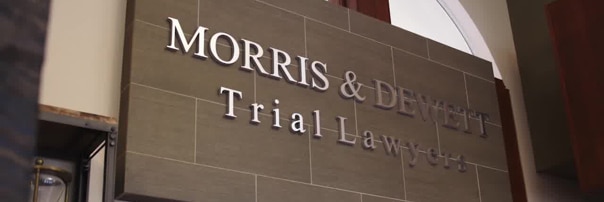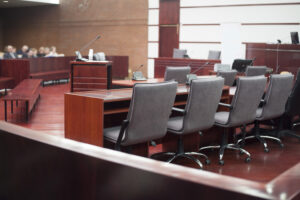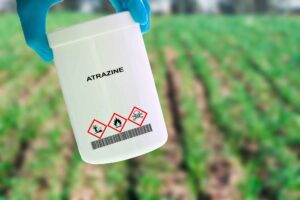A Frivolous Lawsuit or A Just Verdict? You Decide After Learning the Facts
The McDonald’s hot coffee case is arguably one of the most notorious personal injury cases of the last 30 years. As a lightning rod for debates about tort reform, this case is often held up as a symbol of greed, excessive damages, and trivial lawsuits.
After all, coffee IS hot, and the McDonald’s employees didn’t spill the coffee — it spilled while the woman was driving, right? Didn’t that woman just make a cash grab for millions with a frivolous lawsuit? Those are typical responses to the verdict in this case, especially among those who don’t know very much about it.
So, what really happened?
Was the McDonald’s hot coffee case just another example of a trivial lawsuit or was justice served?
Answer that for yourself after seeing the little-known and largely misunderstood facts of this case.
Background: How McDonald’s Hot Coffee Caused Burn Injuries
The incident[1] at the center of this controversial case occurred in 1992 when a 79-year-old woman (the plaintiff) and her grandson visited a McDonald’s drive-thru. After buying coffee, the grandson, who was driving at the time, parked the vehicle.
While the vehicle was parked, the plaintiff attempted to add cream and sugar to her coffee, placing the cup between her knees and taking the lid off the cup. At that point, the coffee spilled, quickly seeping through the plaintiff’s sweatpants and causing second- and third-degree burns on her inner thighs (with third-degree burns being one of the most serious types of burn injuries[2] ).
Following this incident, the plaintiff was hospitalized for eight days, undergoing skin grafts and other intensive treatments. After being released from the hospital, the plaintiff’s daughter provided her with in-home care for three weeks, losing out on income to take care of her injured mother.
Ultimately, it took the plaintiff two years to recover, though she was left with painful, debilitating impairments.
Plaintiff Offers to Settle with McDonald’s Prior to the Hot Coffee Lawsuit
Before [3] officially filing her case, the plaintiff reached out to McDonald’s to try to work out a resolution. Notably, she was not interested in going to trial at first.
In fact, the plaintiff offered to settle her case for $15,000 to $20,000, enough to cover her medical bills and her daughter’s lost wages (for the three weeks her daughter lost income caring for her).
She also requested that McDonald’s change its policy on hot coffee, lowering the temperature of their java to prevent similar accidents and burn injuries in the future.
McDonald’s declined, countering with a mere $800 settlement offer.
After about six months of back-and-forth negotiations — with McDonald’s refusing to budge on its $800 offer and its coffee temperatures — the plaintiff retained legal counsel and proceeded to file her lawsuit.
McDonald’s Hot Coffee Case Goes to Court
In March 1993, still recovering from her burn injuries, the plaintiff filed the now infamous hot coffee case,Liebeck v. McDonald’s Restaurants (Case No. D-202-CV-199302419), in the U.S. District Court for the District of New Mexico. In the complaint, the plaintiff alleged that:
- The scalding hot temperatures of McDonald’s coffee made it defective and unreasonably dangerous.
- McDonald’s coffee was more likely than coffee from other establishments to cause serious burns (due to its scalding temperatures).
- McDonald’s knew about the risks of its hot coffee, and it failed to sufficiently warn customers about those risks.
It’s worth noting that, even after filing the case, the plaintiff’s attorney attempted to settle with McDonald’s for $90,000. Once again, however, McDonald’s rejected the offer, refusing to settle.
In August 1994, the trial for this case got underway, with Judge Robert H. Scott presiding. Over eight days, the arguments, evidence, and experts presented clarified some key issues of this case, including (but not limited to):
- McDonald’s policy on hot coffee: Company policy required McDonald’s chains to serve coffee at 180° to 190°. Liquids at these high temperatures can cause third-degree burns within 3 seconds. By contrast, several other major chains and restaurants have policies requiring coffee to be served at 150° to 160°. Home coffee makers usually keep coffee at 135° to 150°. At these lower temperatures, it can take 20 seconds or more for hot liquids to cause third-degree burns — and that can give people enough time to wipe away hot liquids before they cause severe injuries.
- McDonald’s knowledge of previous hot coffee burns: Aside from the plaintiff, at least 700 others had suffered serious burns from McDonald’s hot coffee. This included children, and the company was aware of these injuries. Still, it refused to change its policy, maintaining scalding temperature requirements for its coffee.
- Minimal warnings on McDonald’s coffee cups: “Hot contents” was the only warning printed on McDonald’s coffee cups. That’s not enough, and it fails to specify the true risks consumers take on when they handle McDonald’s coffee, the plaintiff’s attorney argued.
McDonald’s Defense
In response to the plaintiff’s allegations, McDonald’s argued that:
- The plaintiff bears responsibility for her injuries, not McDonald’s.
- The company only offered $800 — and wouldn’t budge from that amount — because it didn’t believe the plaintiff had a valid case.
- Even though the company knew of at least 700 injuries caused by its hot coffee, that paled in comparison to the billions of cups of coffee the chain served every year.
Beyond these points of defense, McDonald’s also acknowledged in court that:
- The company did NOT realize the burn risks associated with serving 180° to 190° coffee.
- McDonald’s was NOT warning customers about these burn risks, providing no reason for its failure to warn.
McDonald’s Hot Coffee Verdict & Settlement
After [4] deliberations, the jury came back with a verdict for the plaintiff, with:
- $200,000 awarded for medical bills, lost earnings, pain, suffering, and other compensatory damages
- A 20% reduction in those compensatory damages because they deemed the plaintiff was 20% liable for her injuries — That brought the award for compensatory damages down to $160,000.
- $2.7 million in punitive damages, an amount that totaled roughly two days of McDonald’s coffee sales
After the jury verdict was read, Judge Scott reduced the $2.7 million in punitive damages down to $480,000. However, the parties reportedly reached a confidential settlement out of court later, with some outlets reporting the settlement to be just under $500,000.
Remarkably, after the trial, one juror explained that the award of punitive damages was largely related to McDonald’s callous response to the 700 reported burn injuries. They noted how each of the 700 reports of represented a person, and they felt that McDonald’s took its profits more seriously than the reported injuries.
Liebeck v. McDonald’s Restaurants: Frivolous or Fair?
Now that you know the facts, what do you think?
Did the plaintiff run a get-rich-quick scheme and bilk McDonald’s? Or was she just looking for the company to do the right thing?
However you answer those questions, one fact remains — a lot of the myths about the McDonald’s hot coffee case get the facts wrong, and there’s a lot more to the case than many people realize or ever heard about in the news.









